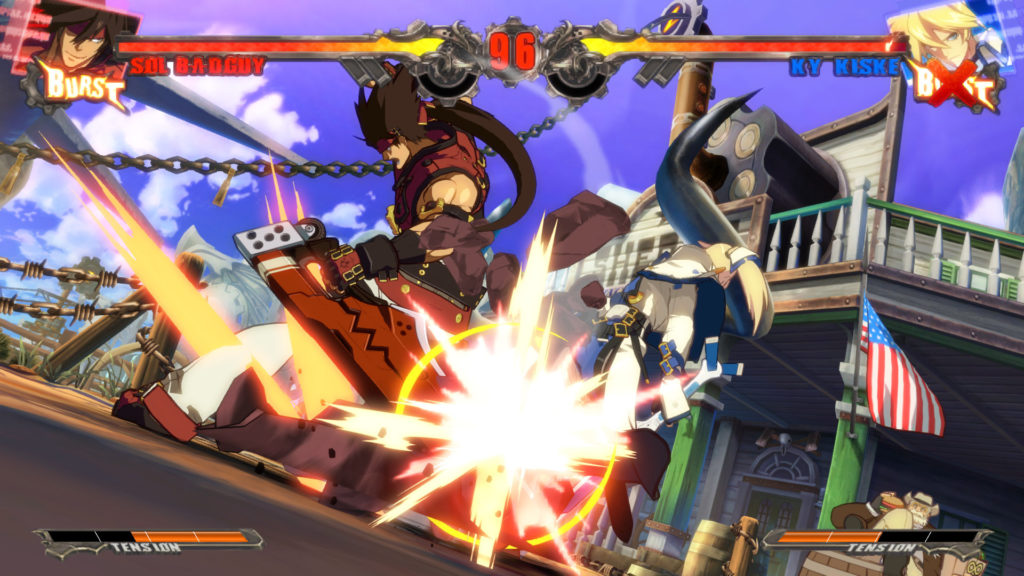Last updated on August 11, 2016
Fighting games, I think, probably constitute one of the toughest challenges of all video games. How to play such games isn’t immediately apparent, other than “hit the other guy”, but most fighting games erect high barriers to entry beyond the simple fun of hitting dudes. A myriad of complex inter-weaved mechanics come into play which can affect the flow of the game and your character. Universal moves for every character further increase the complexity, as well as when to do what move at what time. Furthermore, capitalizing on your opportunities isn’t an immediately applicable skill either, since execution varies depending on muscle memory and how you react to a split-second decision to input your combo correctly. Frankly, even an extensive tutorial isn’t going to fix you – it simply gives you a basis of support, and nothing more.
In sum: I suck at most fighting games, and I know why that is. But, I would also admit that I’ve never really taken the time and effort to obtain any modicum of mastery over a single fighting game since the era of online play. That might seem strange, but fighting games require a lot of effort and intense focus to conquer. I tend towards a more ADD style of picking a game, playing it for a while, and seeing whether it engages me. If it does, then I continue playing it; if it doesn’t, I stop. Fighting games do not work like this. Sure, “immediately engaging” might apply, but just step into an online match and things will go downhill fairly quickly. I can’t say I blame those who simply take the parachute and jump out of the plane right at that moment; abandoning the plane requires a lot less effort than flying it out of a crisis situation!

The question is, does the dedication required end up commensurate with the reward? I suppose I am trying to find that out, right now, with Guilty Gear Xrd. I talked about this game before, of course, but I often drop fighting games pretty quickly regardless of how much praise I give a game. So, to usurp this trend, I’m making a real go at actually being half decent at a fighting game! How do I plan on going about this?
First, by picking a game I like. I like Guilty Gear; I like it a lot. I love the music, I love the crazy character designs, and I love how each one of those crazy design somehow fits a new playstyle into it. So, because I’m playing a game of which I genuinely love the aesthetics, it helps when you get beaten to death for the 1000th time (probably more, when all’s said and done). Hopefully that will make this persist longer.
Second, by, actually, you know, learning from my mistakes. This is part of playing fighting games – figuring out what you did wrong in a particular situation, especially those which led to a terrible loss. When an Elphelt pelts you with all sorts of mixups and you feel powerless to stop it, you need to think hard and say “why”? Well, in Guilty Gear, you generally don’t want to get knocked down or placed into a corner – you want to do that precise thing to your opponent. I can tell you my first mistake is not using Faultless Defense. While blocking, pressing any two buttons together will activate this subsystem, which lets you push attacking opponents away. You need this to get out of multi-angled offensive pressure, and not knowing this cost me more than a few matches. Now I just have to integrate this into my game.
Further, I actually have to figure out how to play offensively. I am, by nature, the sort of defensive “wait and react” player who likes to sit in midrange waiting to capitalize on mistakes. My many, many matches playing with SFIV’s Vega confirmed that for me. However, there’s no real correlation of “mid-range poking” to Guilty Gear’s cast, no matter what iteration we’re looking at. Every person you pick wants to place offensive pressure into knockdown into mixups of doom, and they simply go about this in different ways. This requires a pretty big change of mindset, one that you simply ease into when you realize any and all opponents will go ham on you immediately!

And that directly links into character choice. Obviously, I want to pick someone with low execution requirements, somebody I like playing, and someone whose gameplan remains simplistic enough that I don’t get tripped up over a bunch of new, special mechanics I don’t understand. I could go for the obvious Ryu/Ken picks (Ky/Sol, respectively, though definitely not a 1:1 comparison). However, I never really enjoyed those characters. Why not go for something a little different, like Leo Whitefang? I like his moves, I understand his moveset (get in, knock down, transition to Bryhildr Stance, use it to mix up high/low/overhead/parry into big damage), and the objective remains pretty static. Plus, when it works, it’s pretty satisfying to simply run roughshod over your opponent! So there you go – a character I like who’s also very offensive and works his way in!
And yet, none of these individual factors necessarily produce a win. You can prepare, read, and understand all sorts of things about a game and implement them. Unfortunately, that studying doesn’t always translate to victory. In fact, for me, getting better at the game led to a lot of losing (and I mean, A LOT, as in I lost every match). People who’ve been playing the game for a long while, or who simply hold a better grasp of fighting game fundamentals, will beat you. There’s no randomness, no shortcuts to dig you out of your hole – you must play well to win.
But, you can’t even focus on winning if you don’t know what you’re doing! In that sense, I think one of the most important lessons to learn is this: You Must Lose to Win. What do I mean by this?
